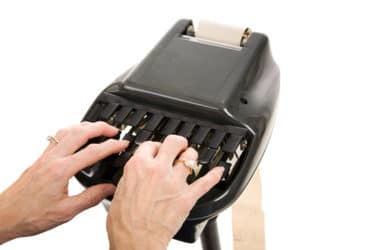 We keep reporting here at CourtScribes.com about the shortages in the court reporting industry. There does not seem to be an end in sight if the enrollment into programs does not increase. Even court reporters themselves see the stenographer shortages ahead. So what can be done?
We keep reporting here at CourtScribes.com about the shortages in the court reporting industry. There does not seem to be an end in sight if the enrollment into programs does not increase. Even court reporters themselves see the stenographer shortages ahead. So what can be done?One issue is that television advertisements for schools & programs have become less common and schools that teach stenography, like Winter Park Tech in Florida, have shut down in recent years. It also does not help that awareness of the profession has greatly declined. This has obviously led to a shortage of young professionals entering the industry.
So What Can Be Done
“The average age of a court reporter right now is 56 years old.”
Let that sink in. What that means, is that as those folks retire in the next five to ten years, the shortage will get deeper if young people are not enrolling.
“Keep in mind that stenographers not only provide transcripts for court proceedings but also live captioning during television broadcasts and even college lectures”, said Rosa Naccarato, government relations chair for the Florida Court Reporters Association.
Chief Judge Frederick Lauten of the Ninth Judicial Circuit of Florida said the looming shortage has spared Central Florida courts so far.
“We just haven’t faced it yet,” he said.
Stenographers are Important
But the shortage of stenographers has been long anticipated. Back in 2013, the National Court Reporters Association commissioned an independent research group to study the industry and make predictions on its future demands.
In the study, known within the industry as the Ducker Report, researchers determined that by 2018 (which has clearly passed) a lack of student enrollment rates “combined with significant retirement rates,” would create a shortage of about 5,500 court reporters nationwide.
The drop in enrollment has led to schools closing, including two in Central Florida. Now, the only stenographic reporting programs in the state are in South Florida, though students can take classes online. Other major hurdles are that student failure rates are high, and so is the cost of equipment and schooling.
Stenography is a Valuable Skill
Stenography is a skill akin to learning piano. It is not easy or for everybody. In some programs, only 4% of students who enter actually graduate. The program itself can take between two to eight years to finish, and tuition can cost more than $10,000 per year.
It is even fair to say that stenography is like a combination of learning a foreign language and a musical instrument at the same time.
However, steno is a lucrative career, and those in the industry say a job is basically guaranteed (those shortages) upon completion of training. Recently graduated stenographers typically start with salaries in the low $40,000 range, but can eventually make upward of $150,000. Because most stenographers are independent contractors, income is based on how much work a reporter takes on. That means there is independence as well. In reality, you are your own boss.
Automation in Stenography
Like many trade occupations, automation has made its way into this industry as well. In court reporting, digital reporters have replaced stenographers for many routine legal proceedings. They set up microphones in a courtroom, then transcribe the recordings later. Seems unfair in a way, doesn’t it?
Training for this is minimal. Just about four weeks of training to do this.
While digital reporters help by freeing up stenographers for more complex legal work, transcriptions can take three to five times longer for a digital reporter and often contain more errors. This is not a help but a hindrance. If the work has to be corrected or double & triple checked than is it worth it?
As courts continue to see a shortage in stenographers, forcing digital reporters to cover more high-profile proceedings, the quality of the record will deteriorate.
Orange and Osceola County courts will actually reserve stenographers for lengthy, high-profile hearings, which indicates the high quality of their work.
Occasionally, transcripts from digital reporters come back indicating a word or sentence was inaudible, which rarely happens with stenographers. Since they are writing the record as it unfolds, they can ask someone to repeat a word, or move closer to their microphone. They can be interactive whereas a recorder just sits and records.
The National Court Reporters Association has a program called “A to Z,” which offers students free, six-week trial classes to test their interest in the profession. This is a great way to test the waters.
Students who decide to pursue the job can get tuition assistance and mentorship through Project Steno, which focuses on student outreach and enrollment.
CourtScribes.com is ready to serve you in your court reporting, videography services, interpreters, live-streaming, and video-to-text synchronization.
Although the majority of cities that offer CourtScribes’ services are in Florida, the company home base, other cities all across these United States that CourtScribes offers services in, are the following: Jacksonville, Miami, Tampa, Port St. Lucie, Fort Lauderdale, Cape Coral, Coral Springs, Clearwater, Palm Bay, Fort Myers, Weston, Sarasota, Orlando, St. Petersburg, Hialeah, Stuart, Hollywood, Naples, West Palm Beach, Boca Raton, Deerfield Beach, Jupiter, Key West, Coral Gables, Maryland, Manhattan, Buffalo, Washington DC, Baltimore, Bowie, Virginia, Frederick, Albany, New York, Brooklyn, Westchester, Gaithersberg, and Rockville.
This blog page, as well as the rest of this really exceptional website was designed by Dependable Website Management. If you think this website looks good and has been informative, don’t hesitate to click the link and take a look at what Dependable Website Management has to offer in the way of web development, social media marketing & management, web hosting, directory management and much more. DWM does amazing work, provides excellent customer service and has a team with over 50 years of combined web development, SEO, SEM and internet marketing experience.


 More times than not, law firms give very little thought to the court reporting firm they will use in litigation. They assume all firms have court reporters who are similarly trained and experienced. Sometimes they stick with a court reporting service they have traditionally used without assessing whether the reporters are meeting the law firm’s needs in the most effective way. These law firms may be doing themselves and their clients a disservice. This blog post will examine what to ask when hiring a court reporter.
More times than not, law firms give very little thought to the court reporting firm they will use in litigation. They assume all firms have court reporters who are similarly trained and experienced. Sometimes they stick with a court reporting service they have traditionally used without assessing whether the reporters are meeting the law firm’s needs in the most effective way. These law firms may be doing themselves and their clients a disservice. This blog post will examine what to ask when hiring a court reporter. There are many professions that simply do not get the spotlight that they deserve. We know that we need talented doctors, dentists, and teachers. But there are other professionals who have amazing skills in essential positions. A court reporting career showcases those with those amazing skills.
There are many professions that simply do not get the spotlight that they deserve. We know that we need talented doctors, dentists, and teachers. But there are other professionals who have amazing skills in essential positions. A court reporting career showcases those with those amazing skills.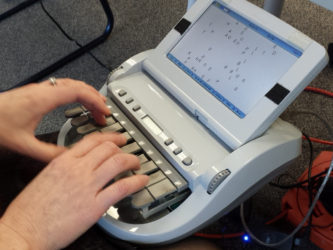
 If you have been a dedicated blog reader here at CourtScribes.com you have read about the severe shortage in the industry. Courtscribes.com is your premier court reporting and video-to-text reporting service, provider. Well, there is a Pennsylvania college that notices the shortage and wanted to help do something about it.
If you have been a dedicated blog reader here at CourtScribes.com you have read about the severe shortage in the industry. Courtscribes.com is your premier court reporting and video-to-text reporting service, provider. Well, there is a Pennsylvania college that notices the shortage and wanted to help do something about it.
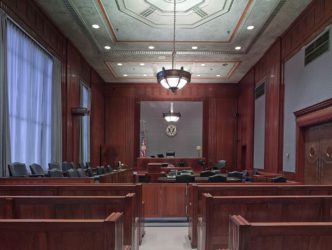 If you have a need for court services, you might want to look into contacting
If you have a need for court services, you might want to look into contacting 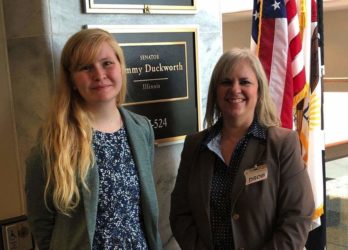
 There are few jobs that are more in demand than court reporters right now. There is a major shortage all around the country. Here,
There are few jobs that are more in demand than court reporters right now. There is a major shortage all around the country. Here, 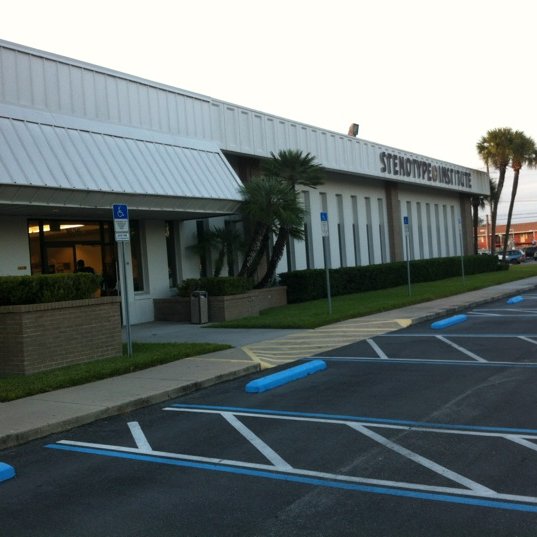



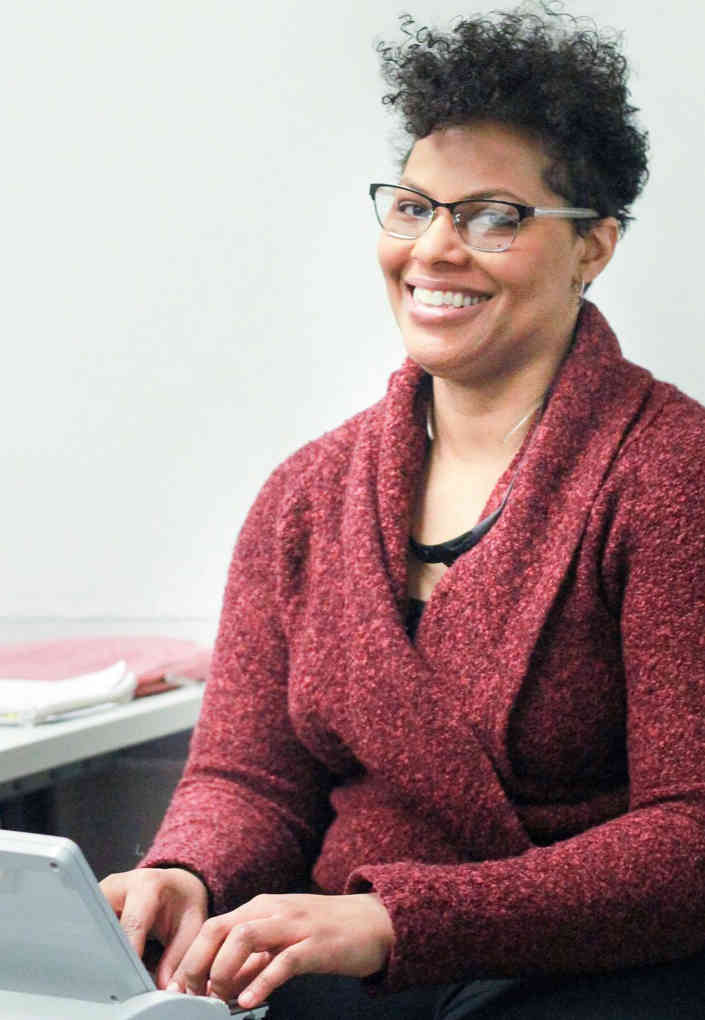

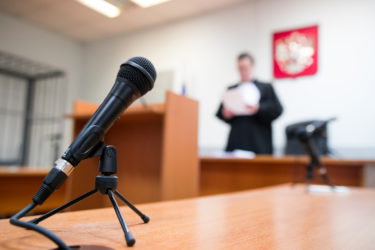
 A court reporting student who gets a degree at MacCormac is likely to come out with about $30,000 in debt but will likely get a job paying at least $40,000 annually, Forbes said.
A court reporting student who gets a degree at MacCormac is likely to come out with about $30,000 in debt but will likely get a job paying at least $40,000 annually, Forbes said. Linguists from the University of Pennsylvania, a sociologist from New York University and a co-founder of Philadelphia Lawyers for Social Equity found that among the 27 court reporters they tested, 67 percent of their attempts at paraphrasing inaccurate, and 11 percent were called “gibberish.”
Linguists from the University of Pennsylvania, a sociologist from New York University and a co-founder of Philadelphia Lawyers for Social Equity found that among the 27 court reporters they tested, 67 percent of their attempts at paraphrasing inaccurate, and 11 percent were called “gibberish.”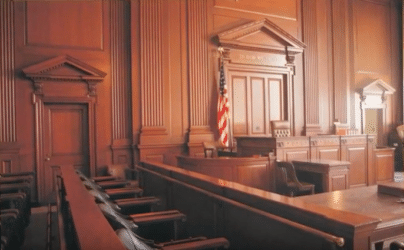 The Sixth Amendment of the United States Constitution grants criminal defendants the right to a speedy and public trial by an impartial
The Sixth Amendment of the United States Constitution grants criminal defendants the right to a speedy and public trial by an impartial  Microsoft
Microsoft The Library of Congress is looking for volunteers to volunteers to transcribe writings left behind by some of the greatest names in history, including
The Library of Congress is looking for volunteers to volunteers to transcribe writings left behind by some of the greatest names in history, including  Emilie Posnan, who has been a Montgomery County Court stenographer for 13 years, got a role on a Showtime drama, “Escape At Dannemora,” about a 2015 prison break in upstate New York.
Emilie Posnan, who has been a Montgomery County Court stenographer for 13 years, got a role on a Showtime drama, “Escape At Dannemora,” about a 2015 prison break in upstate New York. South Dakota is one of the states that’s feeling the effects of the court reporter shortage, according to KELO of
South Dakota is one of the states that’s feeling the effects of the court reporter shortage, according to KELO of 
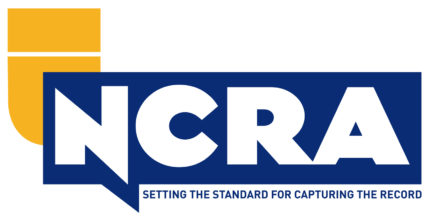 “Today’s announcement does not mark the end of an era for NCRA and NCRF, but rather a step into the future for both organizations as they continue to work together to advance the court reporting and captioning professions,” said Marcia Ferranto, CEO and Executive Director of NCRA.
“Today’s announcement does not mark the end of an era for NCRA and NCRF, but rather a step into the future for both organizations as they continue to work together to advance the court reporting and captioning professions,” said Marcia Ferranto, CEO and Executive Director of NCRA.
 “Harriet O’Neal filed a waiver petition with the Board of Bar Examiners on November 30, 2017, asking that she be allowed to practice law in Georgia without sitting for the Georgia bar exam and without meeting the usual requirements for admission without examination. Specifically, O’Neal based her request for a waiver on her status as the spouse of an active member of the military who had been transferred here,” the court said in a unanimous unsigned opinion, per
“Harriet O’Neal filed a waiver petition with the Board of Bar Examiners on November 30, 2017, asking that she be allowed to practice law in Georgia without sitting for the Georgia bar exam and without meeting the usual requirements for admission without examination. Specifically, O’Neal based her request for a waiver on her status as the spouse of an active member of the military who had been transferred here,” the court said in a unanimous unsigned opinion, per 

 She said the South Carolina Court Administration is already experimenting with digital recorders.
She said the South Carolina Court Administration is already experimenting with digital recorders.